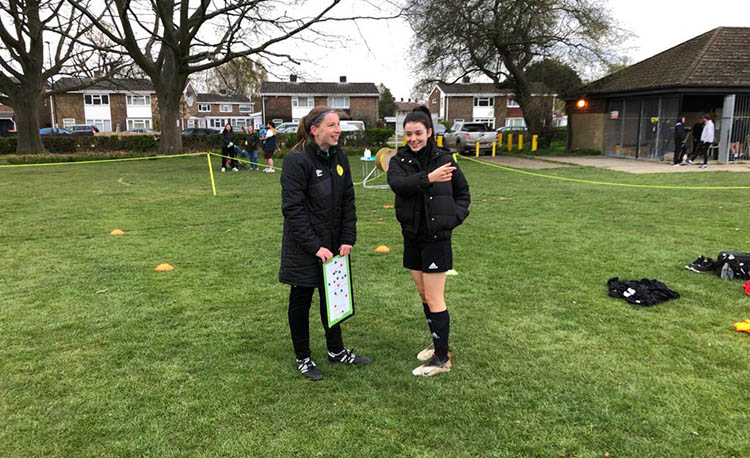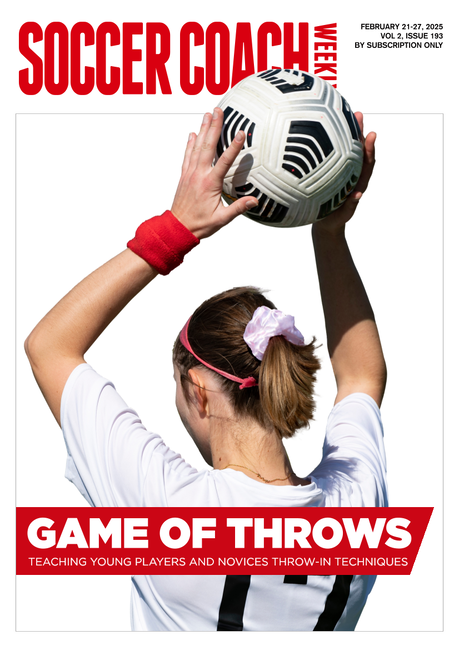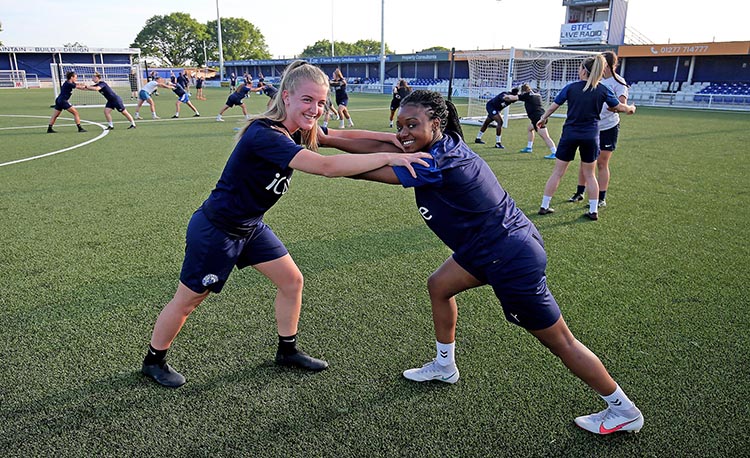6 ways to help your new players fit in
Bringing a newcomer into a tight-knit squad isn’t always easy. Here, HANNAH DUNCAN provides tips on how you can make any new additions feel welcome.
Coaching is as much about how you handlie a diverse group of individuals as it is how you impart technical knowledge.
Creating the right environment can be tough, particularly at youth level where players of differing ability and social development will be thrown together.
So when a new player comes in to your squad, it has the potential to disturb team dynamic – or you may find the newbie isn’t a great mixer.
Here are six suggestions for giving them the right start while maintaining the carefully honed harmony...
01 - MEET THEM FIRST
Speak to your new players and their parents before they come along to training.
Tell them about yourself, the team and how you like to play the game. Find out about them, too – where they have played before and to what extent, which positions they play and if they are right or left footed.
Strike up a personal relationship: ask what team they support, who their favourite player is or what other activities they enjoy away from football.
Seize on something they tell you and tell them your team could do with the addition of such an attribute.
02 - PRE-WARN YOUR TEAM
Let the other players know you have a new arrival joining. Remind them how highly you regard them and that you know they will do everything possible to welcome the new player into the fold.
This can be done in advance, either at the end of a previous session or via a team WhatsApp chat. Maybe have a word with your captain and ask them to welcome the new player on arrival at training.
03 - MAKE INTRODUCTIONS
Don’t embarrass your new players by asking them to introduce themselves to the team in front of everyone.
Make sure you take charge of the welcome and introduce all of your players one by one by name, telling the new players about them and any individual characteristics that make them stand out.
This breaks the ice and will give the new player a chance to remember the names of as many team-mates as possible.
04 - PAIR UP
Choose an existing player who you know is quite responsible, has good social skills or perhaps has something in common with your new player (perhaps they support the same team or go to the same school).
Ask this player to buddy up with the new arrival, at least for the first session or two. It can be their responsibility to explain the warm-up, or check with them during drinks breaks to see how they are settling in.
05 - PRAISE THEM
Go out of your way to single out the new player for praise at training at the first opportunity.
If there is time and it merits it, stop the game and point out how well the player has combined with others. This bonds the new player with their team-mates.
Be careful not to go overboard – you don’t want to alienate your regular players and create resentment towards the new addition.
06 - MAKE IT OFFICIAL
When a new player receives their playing kit, make a big deal of it. Tell them you have seen enough to know they will fit in, highlight a few of their strengths to everyone and remind them of how they complement the existing squad strengths.
Shake their hands, welcome them formally and then get the other players to give them a high five, handshake or round of applause.
With parents’ consent for younger players, you could also promote the signing on the club’s social media channels, with a photo of them holding the shirt and a few words about them.
Related Files
Newsletter Sign Up
Coaches Testimonials

Gerald Kearney, Downtown Las Vegas Soccer Club

Paul Butler, Florida, USA

Rick Shields, Springboro, USA

Tony Green, Pierrefonds Titans, Quebec, Canada
Subscribe Today
Discover the simple way to become a more effective, more successful soccer coach
In a recent survey 89% of subscribers said Soccer Coach Weekly makes them more confident, 91% said Soccer Coach Weekly makes them a more effective coach and 93% said Soccer Coach Weekly makes them more inspired.
*includes 3 coaching manuals
Get Weekly Inspiration
All the latest techniques and approaches
Soccer Coach Weekly offers proven and easy to use soccer drills, coaching sessions, practice plans, small-sided games, warm-ups, training tips and advice.
We've been at the cutting edge of soccer coaching since we launched in 2007, creating resources for the grassroots youth coach, following best practice from around the world and insights from the professional game.







